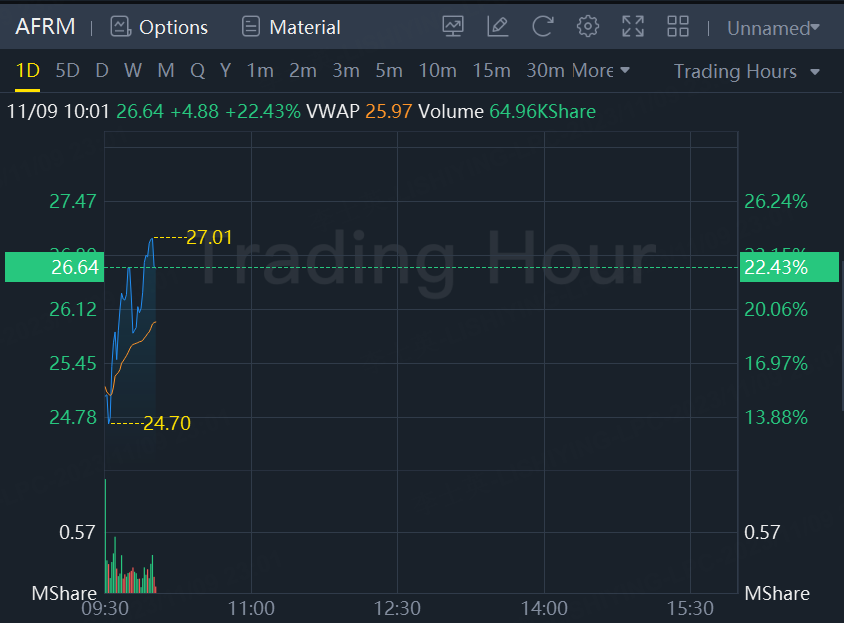Affirm‘s fiscal first-quarter results topped Wall Street expectations as the ‘buy now, pay later’ lender saw total merchandise volume climb 28% year over year to $5.6 billion.
Revenue at Affirm was $497 million, up 37% from the year-ago quarter and well ahead of the $444 million forecast by analysts surveyed by FactSet. Losses amounted to $0.57 a share, better than the $0.61 per share loss analysts expected.
Shares were up 22% in morning trading.
Affirm has had a lot to prove in recent years. The stock soared in its first year as a public company in 2021 but shares are down nearly 90% from their peak as investors question whether the lender is equipped to operate in a weaker economy in which its own funding costs have risen.
Affirm has maintained that its model allows it to swiftly adjust its underwriting to address changes in the economy and consumer behavior. That underwriting has been put to the test as interest rates have remained high and many lenders have seen delinquencies creep up to prepandemic levels.
In its fiscal first quarter, Affirm noted that 30-day delinquencies ticked up sequentially, in-line with seasonal trends. But delinquencies actually declined 30 basis points year over year, due to adjustments Affirm made to underwriting. (100 basis points is one percentage point.) While Affirm has access to similar data sets as other lenders, it touts its ability to crunch the numbers on merchants, product types, consumer behavior, and other inputs to decide when to extend credit.
“The thing that we do really well is we’re just a factory floor for building really robust risk models and doing it over and over again,” Max Levchin, chief executive at Affirm, told Barron’s Wednesday.
Even so, Wall Street had been bearish on Affirm’s stock, with only four of the 18 analysts surveyed by FactSet rating shares the equivalent of a Buy. Eight have a Hold rating on shares, while six have a Sell rating. The average price target on shares is $16.53, down 21% from recent trading levels.
Some more bullish positions may emerge in light of Wednesday’s results as the company continues to try to grow market share.
“If you compare Affirm’s volume relative to total commerce in the US, we are a very, very small speck in that giant market. So first, we expect to grow because there’s just a lot more greenfield for us to take and consumer demand for this product is very strong,” Levchin said.

